Improving reading comprehension Worksheets for Ages 6-7
9 filtered results
-
From - To
Boost your child's reading skills with our expertly designed "Improving Reading Comprehension Worksheets for Ages 6-7". These engaging worksheets focus on essential reading strategies like summarizing, predicting, and questioning, tailored for young learners. Created by seasoned educators, our comprehensive activities enhance vocabulary, critical thinking, and understanding of various text types. Your child will enjoy colorful illustrations and fun narratives that make learning enjoyable. Perfect for both classroom use and at-home practice, these worksheets ensure a solid foundation for reading success. Help your child advance in reading comprehension with Kids Academy’s exceptional resources today!
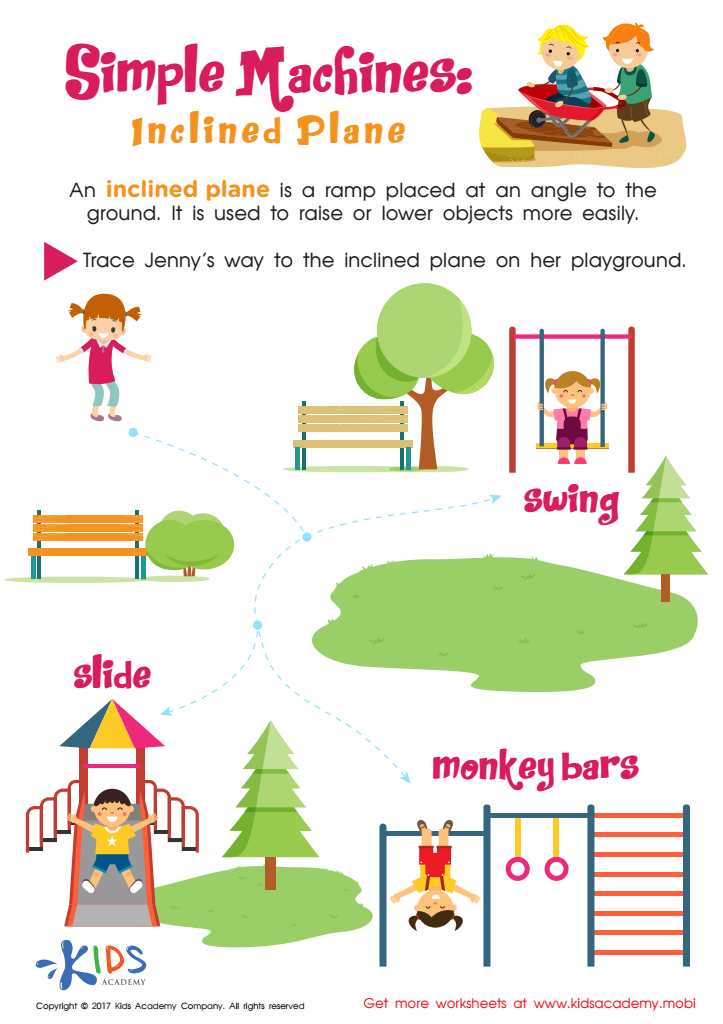

Simple Machines Inclined Plane Worksheet
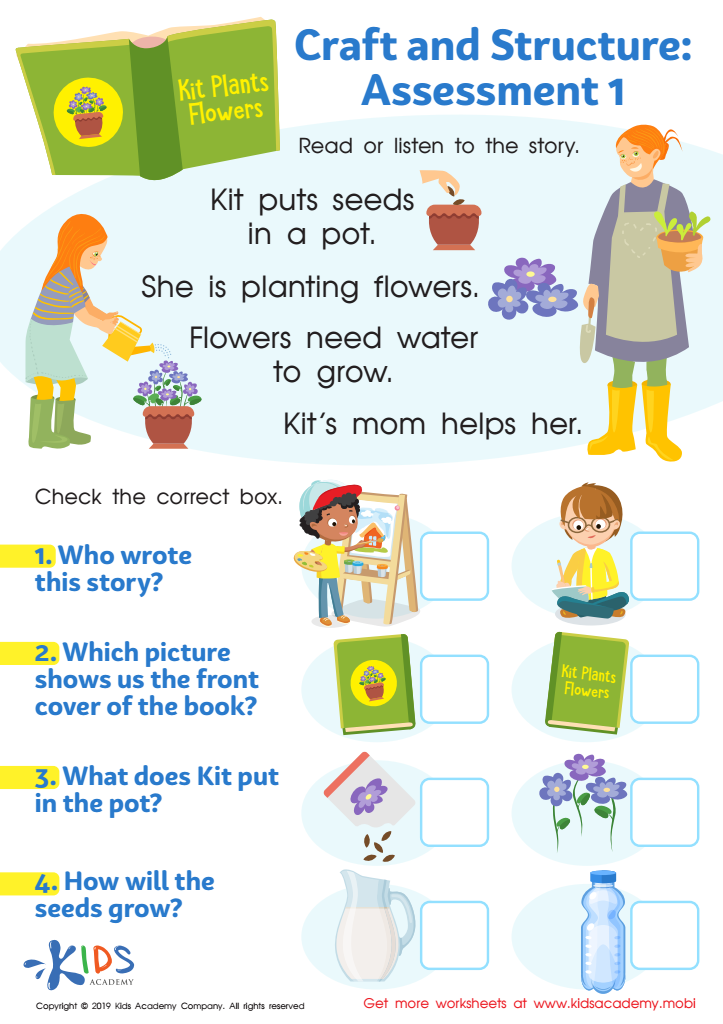

Craft and Structure: Assessment 1 Worksheet
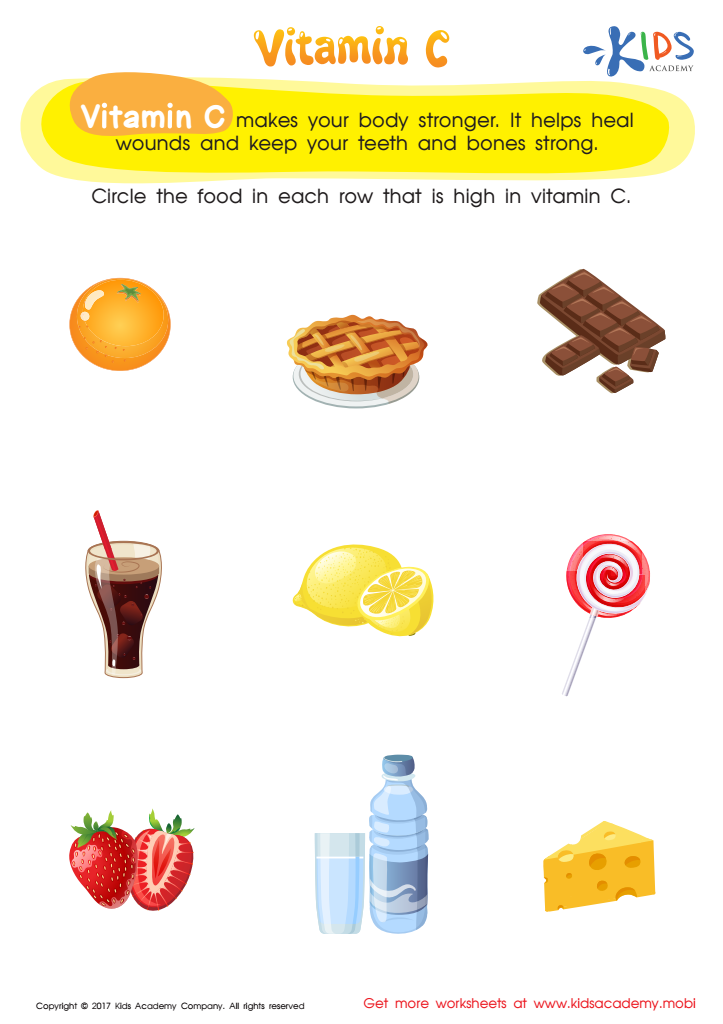

Vitamin C Worksheet
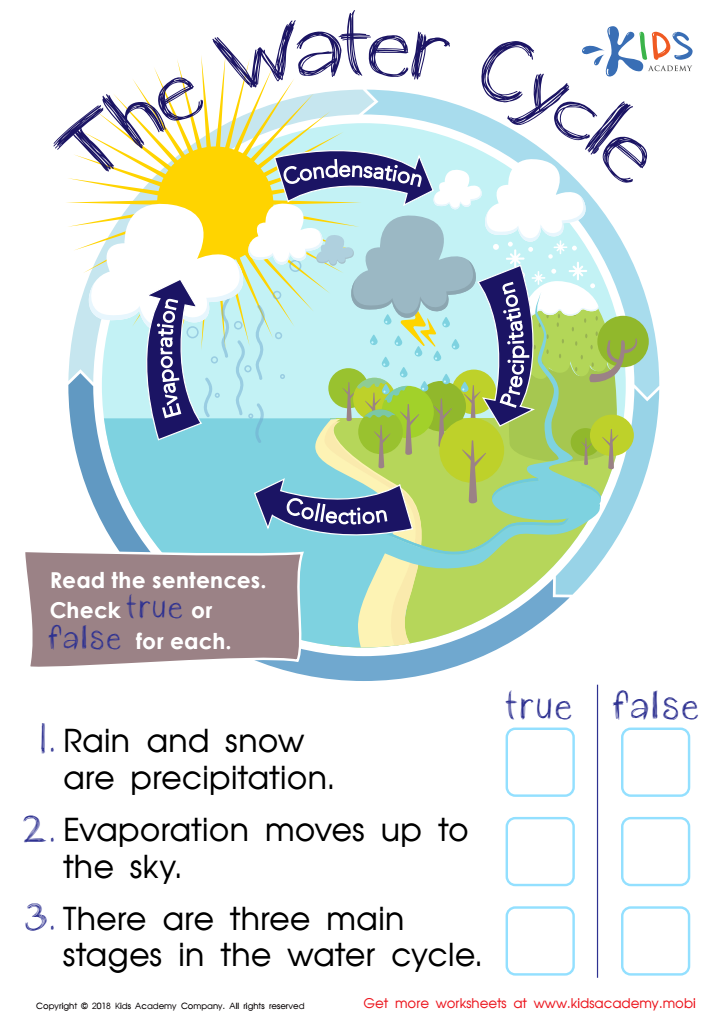

The Water Cycle Worksheet
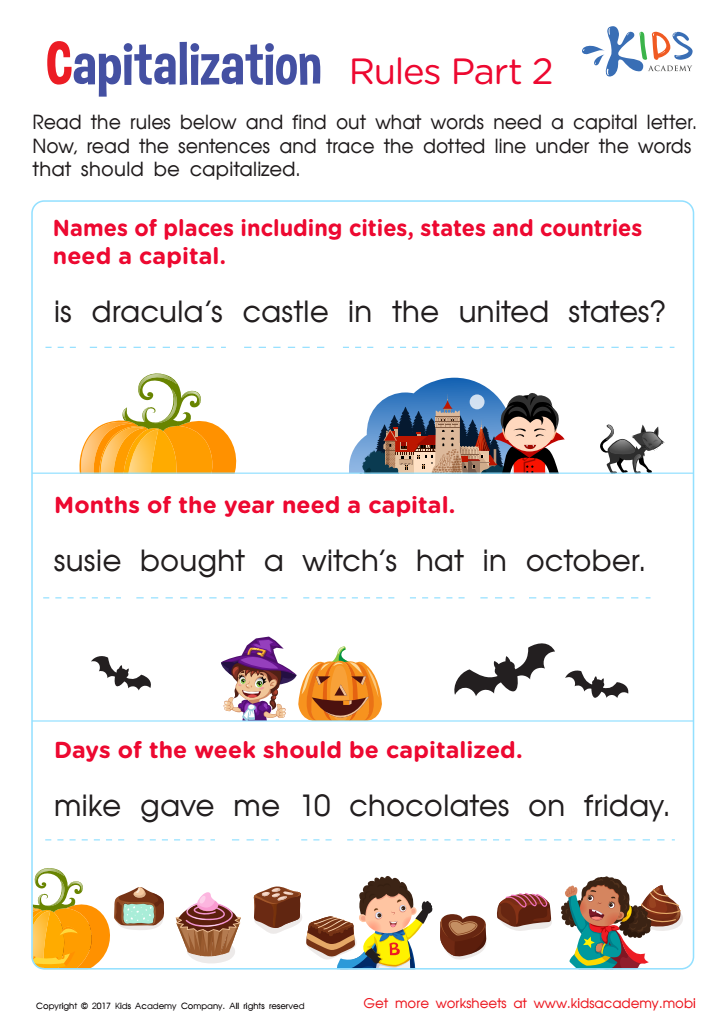

Capitalization Rules: Part 2 Worksheet
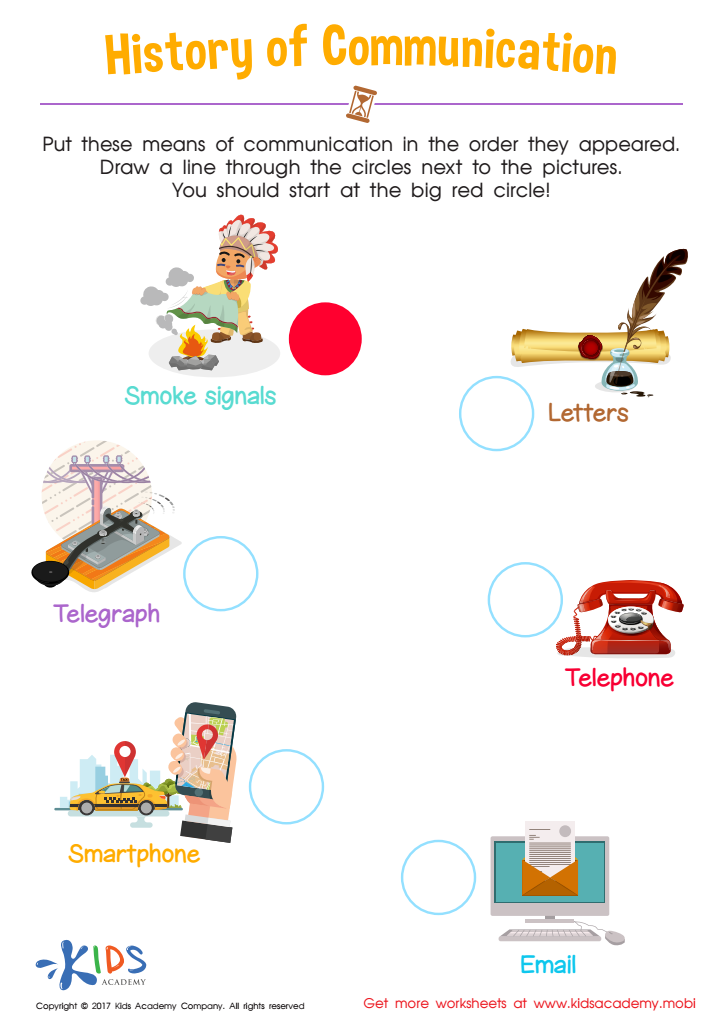

History of Communication Worksheet
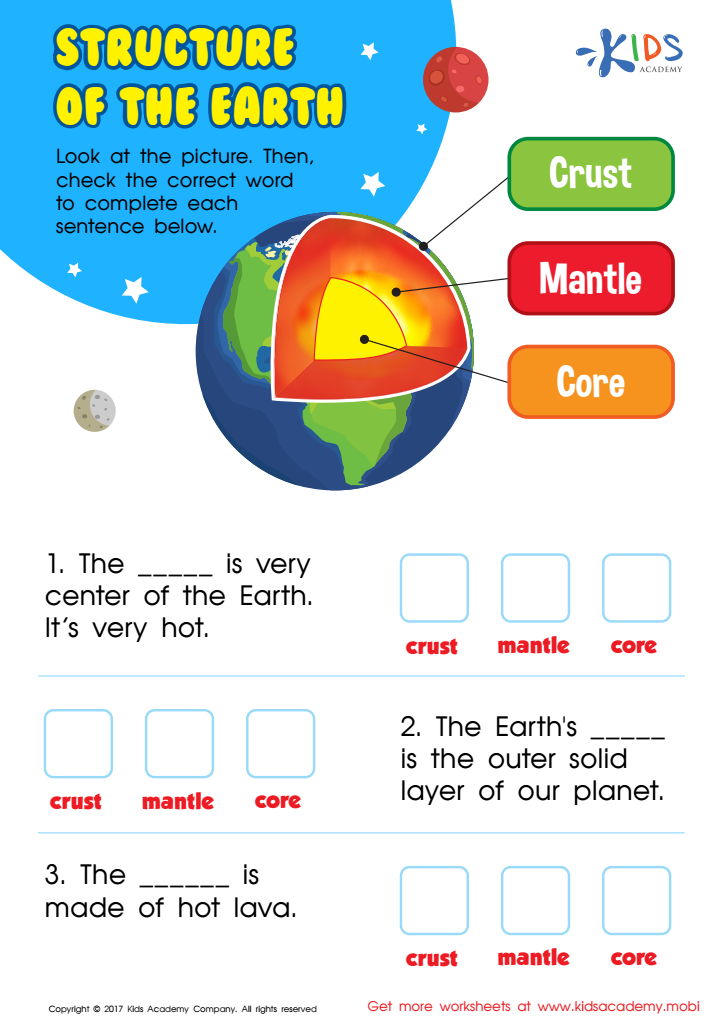

Structure of the Earth Worksheet
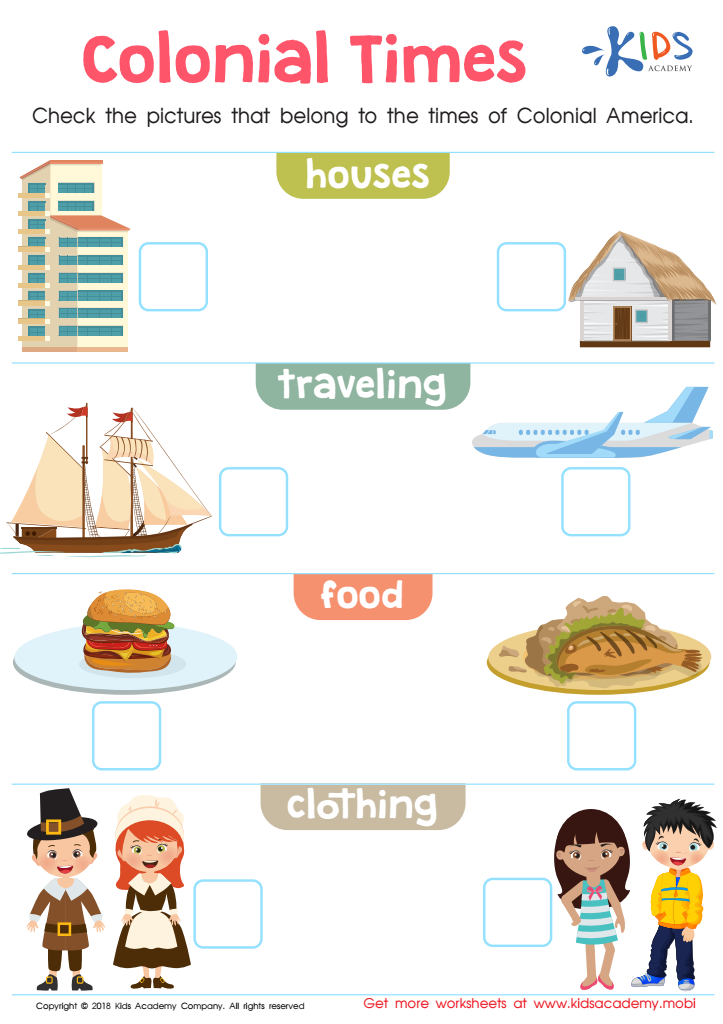

Colonial Times Worksheet
Reading comprehension is a fundamental skill that significantly influences a child's academic trajectory and lifelong learning. At ages 6-7, children are transitioning from learning to read to reading to learn, making this a critical period for developing comprehension skills. Effective reading comprehension enables young learners to understand the material they read, fostering a deeper connection with the content, which is crucial for their cognitive development and curiosity.
Improving reading comprehension at this age lays a solid foundation for future learning across all subjects. For example, understanding word problems in math, grasping scientific concepts, or following historical narratives all require robust comprehension skills. When children can understand and interpret text effectively, they build confidence and enjoy reading more, which encourages a love for learning and academic improvement.
Additionally, strong reading comprehension enhances vocabulary, critical thinking, and empathy. As children explore stories and characters, they learn new words and ideas, develop reasoning abilities, and understand diverse perspectives. This broader understanding helps them interact better with peers and adults, contributing to social and emotional development.
Therefore, parents and teachers should prioritize reading comprehension by engaging children with diverse and age-appropriate books, asking open-ended questions about their reading, and fostering discussions. These efforts ensure children not only become proficient readers but also enthusiastic learners, well-equipped for future educational challenges.
 Assign to My Students
Assign to My Students
















